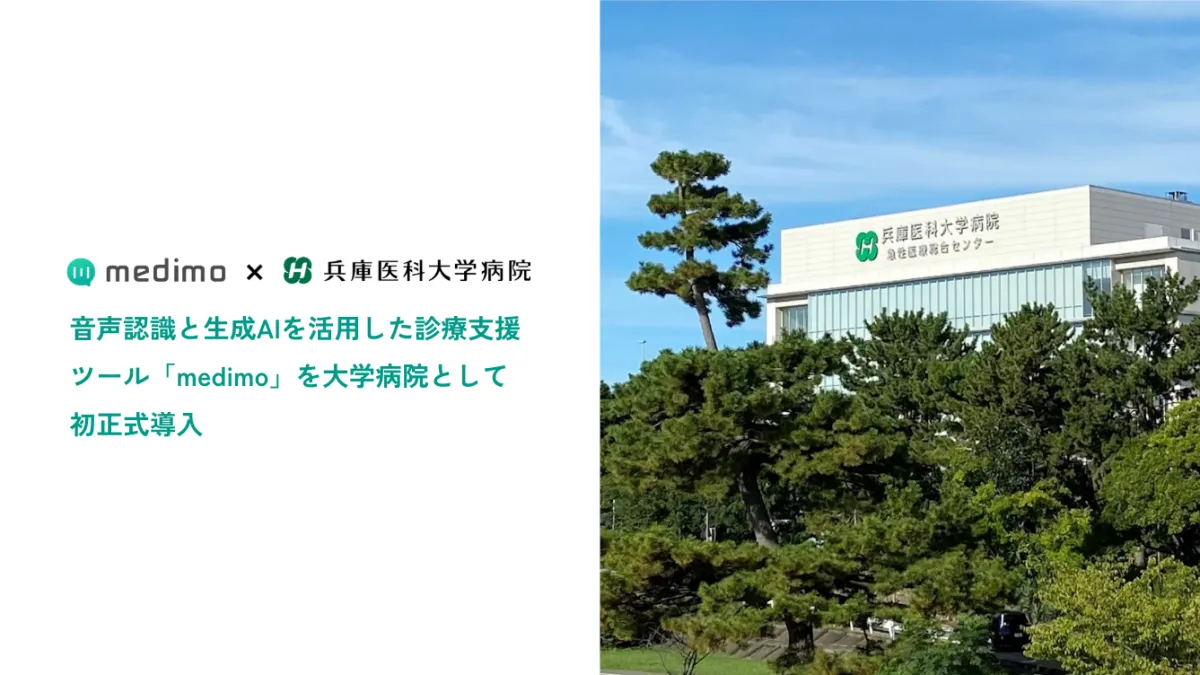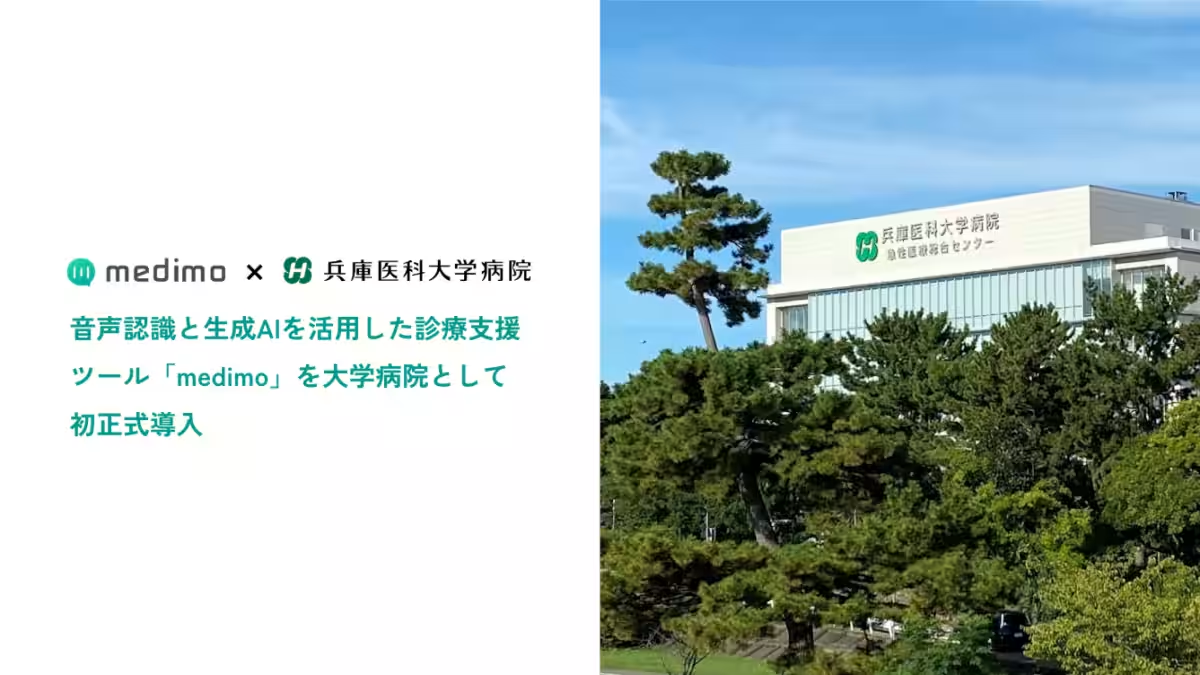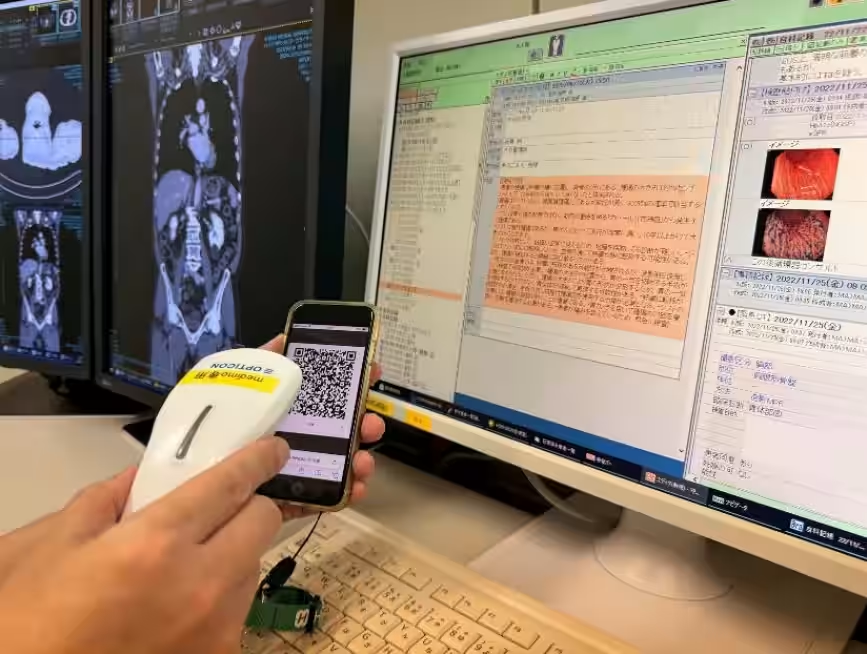

Hyogo Medical University Hospital Introduces Advanced AI Support Tool for Medical Consultation
Introduction
In a significant leap towards integrating technology into healthcare, Hyogo Medical University Hospital has become the first university hospital in Japan to officially implement 'medimo', a revolutionary medical consultation support tool developed by medimo Inc. This tool harnesses the power of voice recognition and generative AI, aiming to enhance the efficiency and quality of medical practices.
Overview of medimo
Launched officially on June 1, 2025, 'medimo' serves as a vital resource for medical staff, automatically transcribing conversations that occur in clinical settings and employing generative AI to create concise summaries. This innovation optimizes the recording process for electronic medical records (EMR) and is particularly beneficial for documenting patient explanations and informed consent processes.
The hospital leadership, under the direction of President Hiroki Ikeuchi, emphasizes that this initiative is pivotal in promoting a more efficient and comprehensible healthcare experience for patients.
Expected Benefits of the System
The introduction of 'medimo' is anticipated to yield several advantages, including:
1. Significant Reduction in Documentation Time: Physicians can focus more on patient interaction rather than paperwork.
2. Accurate Record Keeping: By relying on real-time transcriptions, the potential for errors due to memory lapses is minimized.
3. Reviewable Explanatory Content: Audio recordings will allow physicians to revisit patient explanations post-consultation for enhanced understanding.
4. Improved Communication Skills: The AI encourages clearer and more structured explanations, aiding in developing better communication skills among healthcare providers.
Challenges in Traditional Documentation
Traditionally, physicians face considerable pressure to document detailed accounts of their interactions with patients, including explanations, responses, and questions. This documentation process often requires them to recollect discussions after the consultation, which not only increases their cognitive load but also poses challenges due to the growing complexity of medical care and the rise in high-risk patients requiring more extensive explanations.
How medimo Works
With 'medimo', physicians can record patient interactions using specialized in-hospital smartphones. The system transcribes these conversations in real-time, and upon completion, summarizes the content into approximately 1,000 words using generative AI. This summary is converted into a QR code that allows immediate transfer to the EMR terminal, completing documentation in roughly a minute. This expedited process underscores the efficiency of the medimo tool and its ability to streamline the often burdensome task of patient record-keeping.
Current Implementation and Future Plans
Currently, one physician from each department has been selected to pilot the use of 'medimo', and the feedback regarding the AI-generated summaries has been highly positive. After confirming stable implementation of the system, there are plans to roll out its use to all physicians within the year. Additionally, considerations are being made to extend the application to other healthcare staff, including nurses, to further optimize the functionality and application of this innovative tool.
About medimo Inc.
Founded in April 2022, medimo Inc. stands at the forefront of health tech innovation with its mission to make healthcare sustainable through cutting-edge technology. By focusing on AI and natural language processing, medimo aims to simplify documentation processes and allow healthcare professionals to dedicate more time to patient care. Their headquarters is located at Roppongi Hills Mori Tower, and they emphasize a commitment to enhancing the healthcare environment for both providers and patients alike. More information can be found at their official website: medimo.ai.
Through initiatives like 'medimo', Hyogo Medical University Hospital is setting a benchmark for the integration of AI technology in healthcare, paving the way for more effective, efficient, and patient-centered medical practices.


Topics Health)










【About Using Articles】
You can freely use the title and article content by linking to the page where the article is posted.
※ Images cannot be used.
【About Links】
Links are free to use.